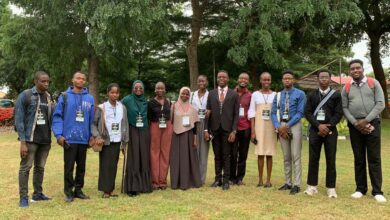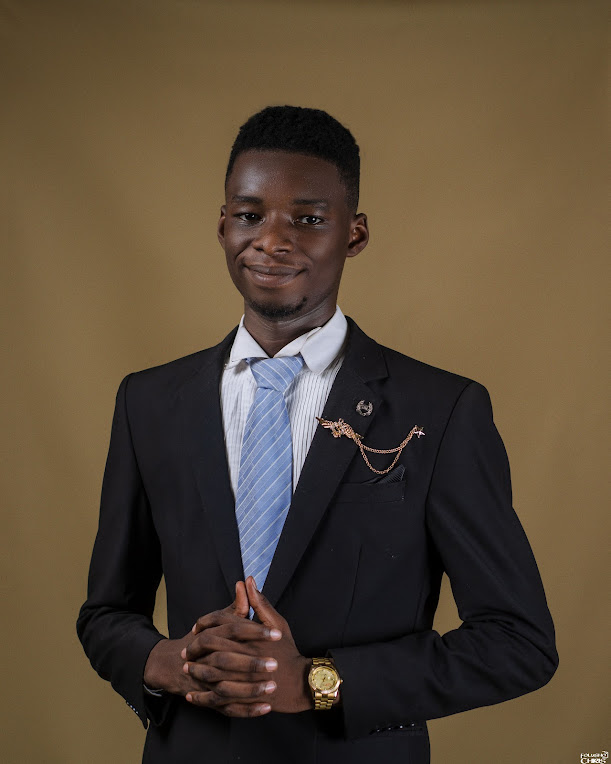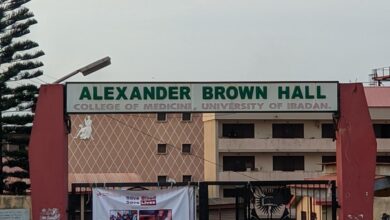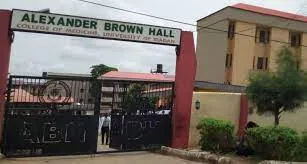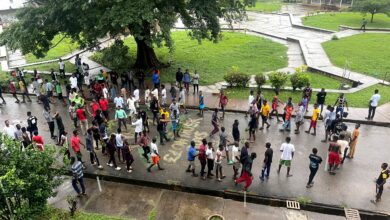The Crisis at University of Calabar’s Faculty of Dentistry
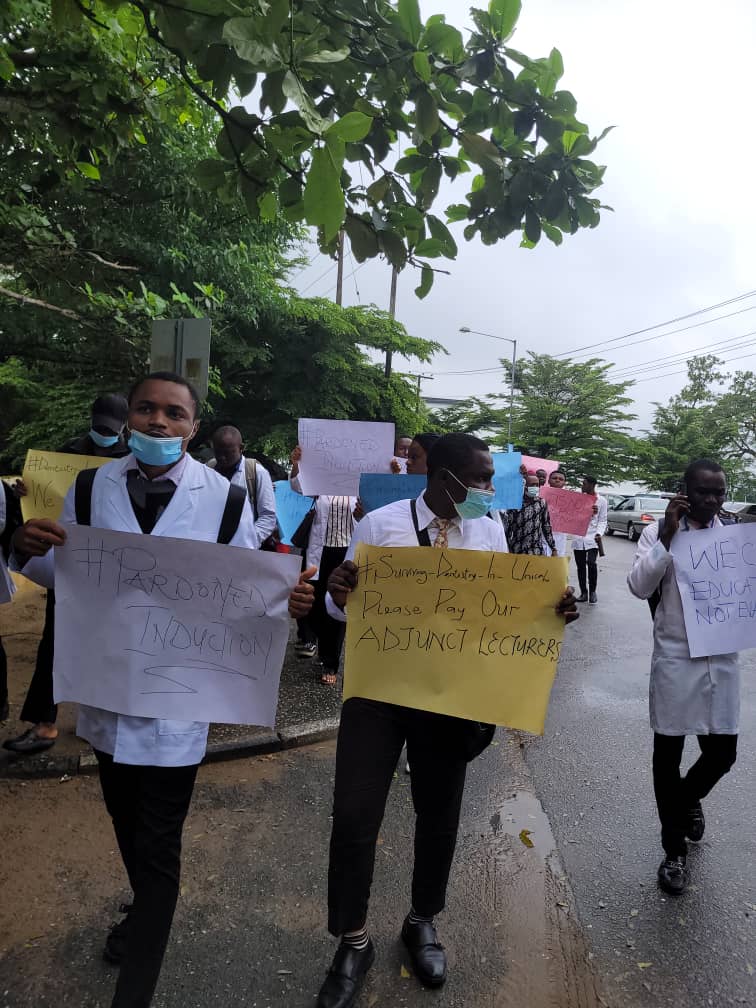
Just hours before the announcement that would change everything, I walked from the dental clinic where my consultant had casually mentioned that we students should perform every composite filling starting the following week. It was routine clinical instruction – the kind that punctuated our days as dental students at the University of Calabar. I had no idea I would never return to that clinic as a student.
The sky was dark and heavy with rain as my classmates and I made our way to the hall for what we assumed would be another administrative meeting. We cracked nervous jokes, each met with equally nervous laughter. The memo had been ominously formal: “I am directed to invite all dental students and their parents to a meeting with the vice chancellor.” Still, none of us anticipated what was coming – we heard rumors, but we still didn’t know what to expect.
On Thursday, July 10th, over 300 dental students gathered in a hall at the University of Calabar’s College of Medicine to hear devastating news: our vice chancellor announced that we would all be transferred to other schools – this after spending upwards of five years studying dentistry at the University of Calabar.
What followed would be a turning point that exposed not just administrative failure, but the broader crisis facing dental education in Nigeria.
The meeting felt like a drawn-out torture session for the students. The vice chancellor spent the first hour speaking to us about her administrative issues as though we were a parliament assembled to proffer solutions and not students under her care. At some point, we were made to feel guilty for the demands of our dental program: the equipment, the tools, the staff – all lacking because our school fees were not enough. She complained about how often school issues end up on social media – and I hope she reads this – and how we were bringing a bad name to the university. Not the administrative failure, not the gross corruption, not the lack of accountability, but we – the students – were the ones bringing shame to a failing institution.
The meeting erupted into shouts of shock and confusion. Our fate had been decided after a meeting in Abuja, where she claimed she had tried everything possible to keep us in the faculty. A problem that started brewing over three years ago was finally overflowing and changing our lives in the worst ways.
The Problem
Every university has a quota for the number of students it can graduate in different programs, and that often dictates the admission process. For dentistry, that quota is 10 students. Ten. The first set of numbers you learn to count, the set of numbers your parents sometimes threaten you with. Ten. But across the board, we have classes ranging from thirty-nine to over one hundred. This problem has hovered over the faculty for years now, along with promises of some kind of resolution.
Is the resolution really to uproot the entire faculty and scatter us across the few dental schools in the country – schools that already have their own students and quota issues? This kind of academic displacement is callous, and students are surely going to fall through the cracks all because the university cannot work out a kinder solution.
The Human Cost
The set of students who were supposed to be inducted as doctors this month will have to watch their counterparts in medicine and surgery take the Hippocratic oath while they’re stuck in limbo. The year 6 class will not continue their clinic days and classes because they don’t know their fate. The year 5A class will not move on with operative and prosthetic technique because Florence Obi wants to make them another school’s problem. The year 5B class cannot enjoy the thrill of special postings because their future is up in the air. The year 4 class cannot navigate the maze of pathology and pharmacology with precision because their compass has been broken. The year 3 class cannot enjoy the freedom of their MB break because their thoughts are caged by doubts about their future. The year 1 class – the bright-eyed ones – cannot even settle in because the vice chancellor has called them downright illegal.
Each of these classes has people who have dreamt of becoming doctors: people whose parents are struggling to find the countless fees medical school makes us pay; people who are struggling on their own to both provide and still maintain academic success; people whose eyes light up to learn; people who have found lifelong bonds in this school. All of this destroyed with a single wave of the hand. The people bestowed with the honor of tending to academic institutions continue to hack at them with no care or respect. What are we really doing as a country?
The Broader Problem
There is a gross lack of medical personnel in this country, and this lack is even worse for dentists. According to the NDA, the ratio of dentists to patients in Nigeria is one dentist for every 54,000 patients, which is a disturbing distance from the WHO-recommended ratio of one dentist for every 5,000 patients. A combination of insufficient training facilities, brain drain to other countries, and occupational burnout means that this will only get worse.
The general idea about dentists within and outside the medical community is interesting, to say the least. There’s a quiet disregard for the occupation, often manifesting in at best snide comments and at worst structural exclusion.
I am not here to argue about the validity and importance of dentists. I chose this profession, and defending it to ignorant people is a waste of time that can be used to become even better – I can think of five things off the top of my head that I want to learn. This broader issue cannot be resolved by simply papering over it; we cannot put band-aids on gaping wounds. The people who have sat on numerous councils and boards related to dentistry, who have the power to define policy, should get to it because a fire is burning in their homes, and it will only get worse.
The Stakes
The Faculty of Dentistry at the University of Calabar is at risk of being dismantled, its students packaged and thrown around the country to places unwilling to take them, despite the promises made by the vice chancellor and the provost of the medical college. If we watch this inhumane act happen now, what will be the next thing we let happen?
Each class of my faculty has put forth a solution to their unique problems, and I implore the provost, the vice chancellor, and even the country to listen to them because a transfer will cause financial, emotional, and academic damage to an already broken profession. What message is being passed to the future dentists who might want to apply to the University of Calabar? That they can wake up one day and be students of the University of Port Harcourt or Lagos, or Maiduguri, just because the school says so.
In 2015, the year I graduated from secondary school, I filled the future ambition section of the graduating class page of the school magazine with “dentist.” I’ve always known what I wanted to be, and the rest of my faculty and I must realize our dreams at the University of Calabar despite the school’s failings and shortcomings.
The provost said in his closing remarks, “all of you will be dental surgeons,” and now I will amend that quote: all of us will be dental surgeons who graduated from the University of Calabar. This is not just about our individual dreams; it’s about the future of dental care in Nigeria and the integrity of our educational system. The question now is whether those in power will choose to build bridges or burn them down.
Jeffrey Ini-Abasi (Contributor)
